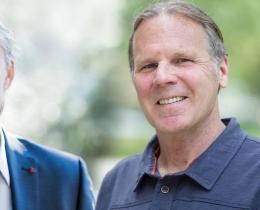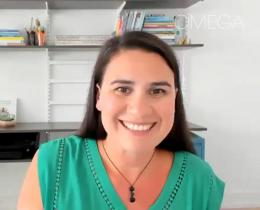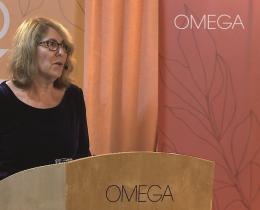A student recently asked me, "When I listen to the news, what starts to arise in me is anger, despair, fear, and hatred. I quickly take a breath, remember my spiritual practice, and let it subside in me before it comes out. I wonder if having this 'enlightened perspective' is just a clever way of blocking the avalanche of feelings that would come if I allowed these emotions to express themselves?"
The words "enlightened perspective" are important here. Often strategies we learned in early stages of our development are projected onto our life now. In many spiritual circles, there's sometimes a severe distortion, and spiritual concepts are used to justify regressive tendencies. This is actually what keeps the world more stuck. It keeps me stuck, but it also keeps the world more stuck because when I use my spiritual practice as a bypass, I’m not a partner for growth in the world.
I think everything ultimately comes back to relation. When you get angry, there's no choice. Once you're angry, you're angry. The choice comes in when you have the freedom in yourself to witness it and the freedom in yourself to stay in relation with your external environment. Then anger can be a drive to manifest one's life more, to be more active in the world, to contribute something. But if you disconnect and anger becomes a hurting tool, then it's just a perpetuation of your own disconnect.
Fear is the same. Many challenging things are going on in the world, and more of them are going to come. What we need are people who are willing to go through an inner process of clarification to become centers of presence that can keep a connection with inside and outside.
There will be many more opportunities in the future to be in challenging situations, and we will need leadership that is able to stay vulnerable, not shut down, becoming distant and overregulating. We need people that can stay in their fear of change. We are human beings. We are supposed to feel, but we are supposed to feel and contain our feelings, to be a vessel for them. Sometimes the spiritual dimension is used to cover this part up, and then later it creeps into the room anyway.
This is why I say we need to explore our relation to our cultural process. We need a very clear inner awareness. We also need social environments where we can process our cultural witnessing and everything that it does within us. I call it global social witnessing. Being aware of how I’m digesting what I read in the news, or how I relate to what's in the news—like how I'm dissociating to try to protect myself or how my own drama is being triggered through traumatizing events—is very important, especially in a world with as much data transmission as we have today.
The fact is emotions will come up. But the way we hold them, and how we examine them, that's very interesting. I think the way to fear less is to fear more first. Most of us are trained to overregulate fear, to contract when we feel it. This comes from when we were little, from how our early attachment processes played out. Fear is an emotion of connection for kids. When we were young we would go out from our parents, and when we felt fear we would go back. We went out and came back. There’s a natural evolutionary movement into relationship when we’re afraid. We ran to our mother or father because the parent is the structure for the child, and we released the fear in our nervous system to our parent.
But for many of us, we couldn't fully come back to our parents. They couldn’t hold our fear, so we learned to hold it ourselves, in our own base. When we hold fear in our base, it generates the feeling of not having enough. We're living in a world where there's a constant fear that there are not going to be enough resources. But that's just a state of consciousness—it’s not true.
What is true is when I hold fear in my base, I will chronically always be a bit afraid that I will not have enough or that things will disappear. And I will do something in order to feel safe within the lack of safety. I think many people in our population carry this, and that's why we’ve created a culture that's based on the fear of losing. I’m afraid I will lose my relationship, I will lose my money, I will lose my status in the world. This has nothing to do with my current situation. Usually it has something to do with my past, and then maybe I recreate it in my life because I make decisions that are fueled by fear.
In our times we are exposed to so much information that all of this stuff gets triggered much more than 40 years ago. We need an inner process that supports us when living in a time of the internet and AI and all the many things that are standing on our doorstep. It's here. Culture will change. Personal exploration is key, and it’s also important to have an environment where we speak with each other about the impact of the cultural field on us.



